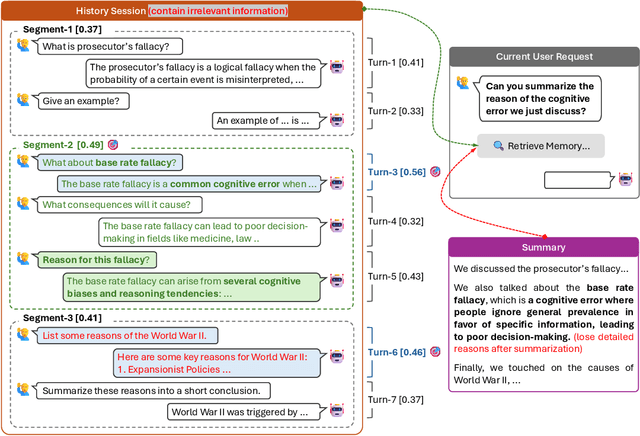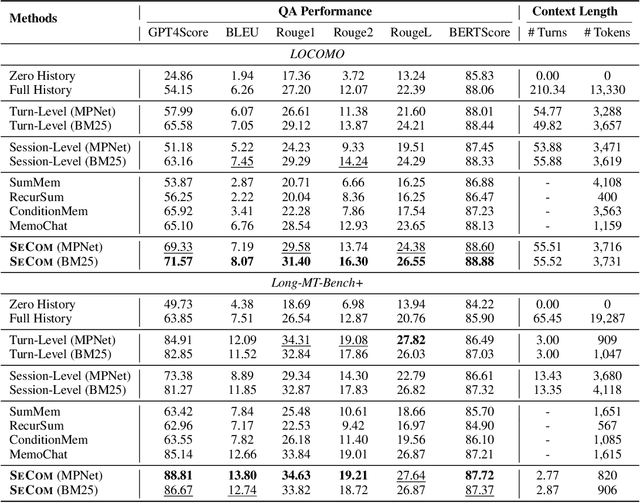On Memory Construction and Retrieval for Personalized Conversational Agents
Paper and Code
Feb 08, 2025



To deliver coherent and personalized experiences in long-term conversations, existing approaches typically perform retrieval augmented response generation by constructing memory banks from conversation history at either the turn-level, session-level, or through summarization techniques. In this paper, we present two key findings: (1) The granularity of memory unit matters: Turn-level, session-level, and summarization-based methods each exhibit limitations in both memory retrieval accuracy and the semantic quality of the retrieved content. (2) Prompt compression methods, such as \textit{LLMLingua-2}, can effectively serve as a denoising mechanism, enhancing memory retrieval accuracy across different granularities. Building on these insights, we propose SeCom, a method that constructs a memory bank with topical segments by introducing a conversation Segmentation model, while performing memory retrieval based on Compressed memory units. Experimental results show that SeCom outperforms turn-level, session-level, and several summarization-based methods on long-term conversation benchmarks such as LOCOMO and Long-MT-Bench+. Additionally, the proposed conversation segmentation method demonstrates superior performance on dialogue segmentation datasets such as DialSeg711, TIAGE, and SuperDialSeg.
 Add to Chrome
Add to Chrome Add to Firefox
Add to Firefox Add to Edge
Add to Edge